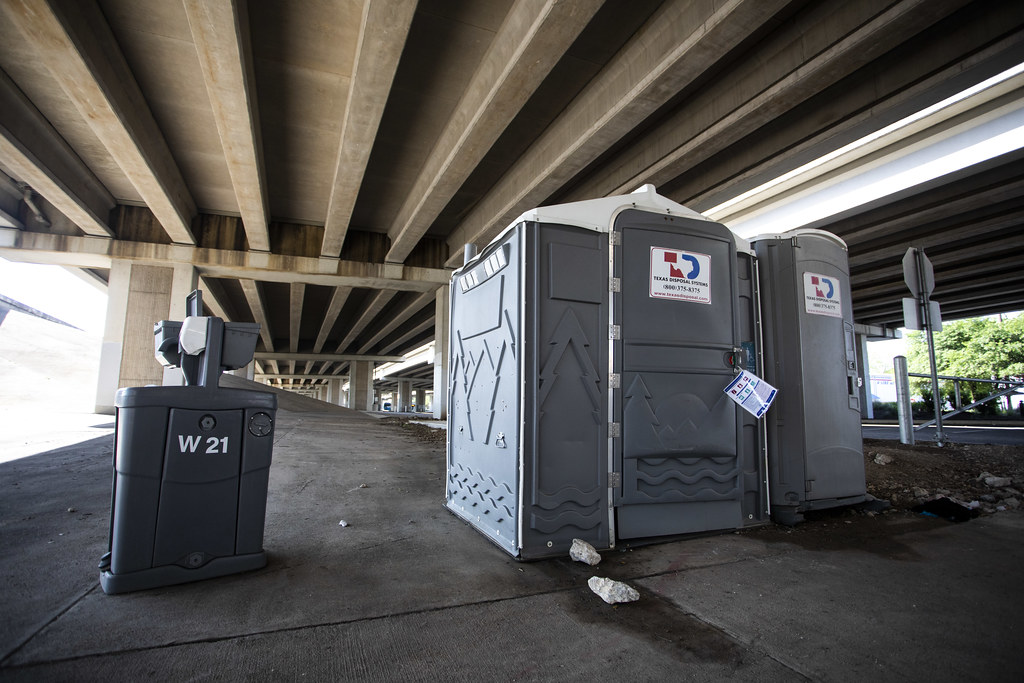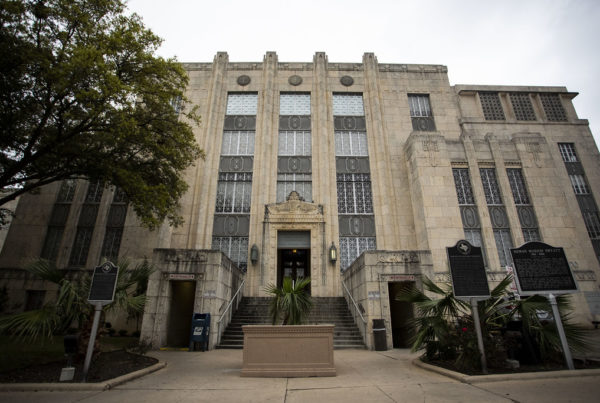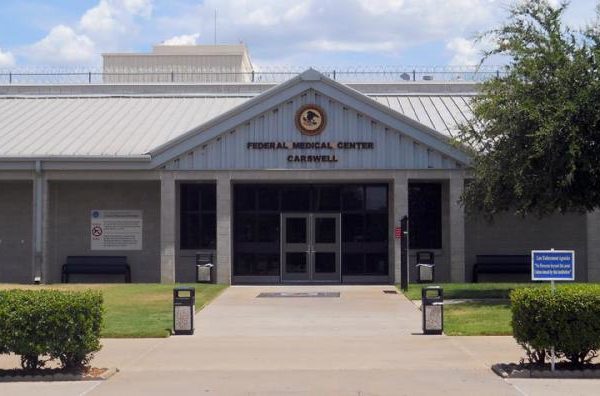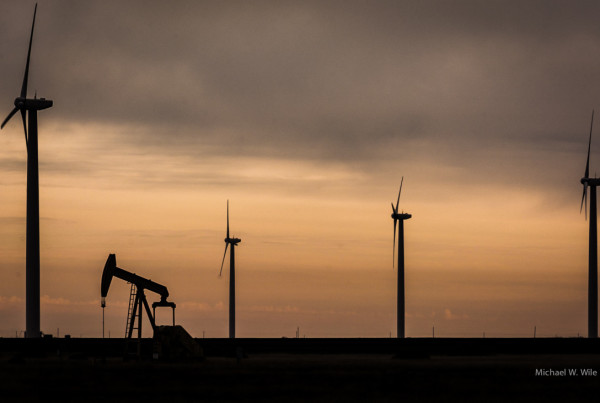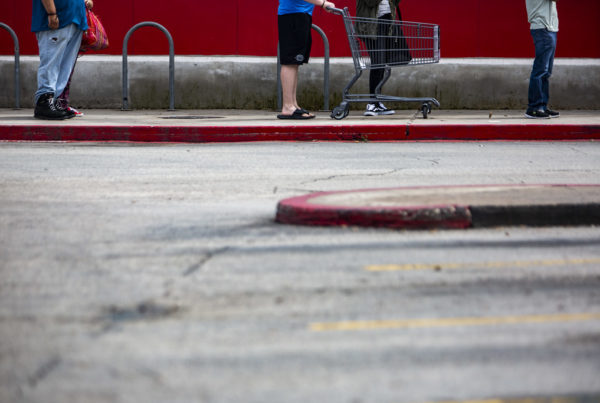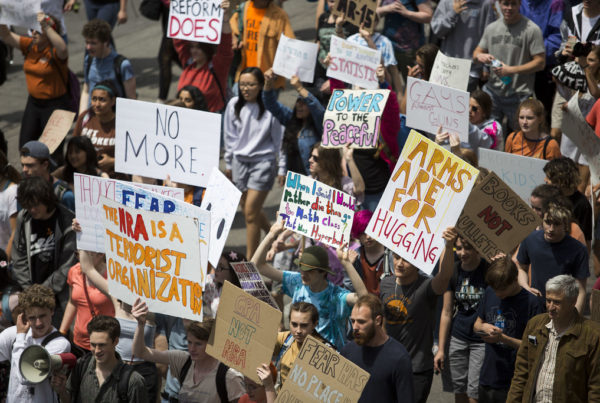Note: More people staying at Austin homeless shelters have tested positive for COVID-19 since the interview for this story was recorded. That change is reflected in the story below.
Shelter-in-place orders have been the way many local governments have tried to slow the spread of the coronavirus in Texas. But sheltering in place is nearly impossible for many homeless Texans.
With that in mind, local leaders and advocates in three Texas cities are trying different ways to stem COVID-19 outbreaks among homeless populations.
Austin City Council member Ann Kitchen says Austin is promoting sanitation through mobile hand-washing, shower and bathroom stations.
“We’ve placed [them] around the city for our unsheltered homeless folks. That’s so important to have access to,” she says.
Thirteen people experiencing homelessness in Austin have tested positive for COVID-19; 12 were staying at a Salvation Army shelter downtown and one was staying at the Austin Resource Center for the Homeless. KUT Austin reports that the Salvation Army has moved all of the people staying in its shelter to a city-leased motel.
So far in Lubbock and Dallas, there are no confirmed cases of COVID-19 among homeless residents.
But Lubbock City Council member Latrelle Joy says her city is ready if and when that happens. Part of that preparation includes the same things everyone is being told to do, sheltered or not.
“Social distancing is extremely important, regardless of who you are, where you are or where your living,” Joy says. “Masking and social distancing has to happen, and we need to keep reminding everyone about that.”
Carl Falconer, president and CEO of the Metro Dallas Homeless Alliance, says his organization is trying to prevent more people from becoming homeless as a result of the pandemic. There was already an at-risk contingent of people living paycheck to paycheck before the pandemic. Now, some of them will lose their jobs.
“I think some of the CARES Act funding that’s coming from the federal government – that’s some of the discussion we’re having now, is, how to be able to use those funds to prevent people from becoming homeless,” Falconer says.
Getting people housed is an important part of maintaining public health, especially during a pandemic. People who have shelter are more able to protect their own health, and that helps protect the health of the community around them.
“It is more than just four walls and a roof,” Falconer says. “Housing is health care.”
Written by Kristen Cabrera.


